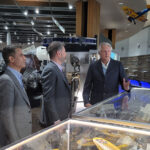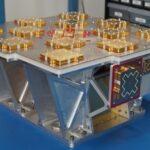H2FLY, the Stuttgart-based developer of hydrogen fuel cell systems for aircraft, has announced it has successfully passed liquid hydrogen on-ground filling tests with the newly developed liquid hydrogen tank which is integrated into its HY4 aircraft.
The efforts are part of the European project HEAVEN, a consortium of five partners to demonstrate the feasibility of using liquid, cryogenic hydrogen-powered fuel cell powertrain in aircraft, led by H2FLY.
H2FLY has successfully passed the filling tests of the new liquid hydrogen storage system which is designed and supplied by its project partner Air Liquide based on H2FLY’s requirements.
The filling procedure took place in preparation for the forthcoming coupling tests in which the liquid hydrogen storage system will be coupled with the fuel cell system to form a complete hydrogen-electric powertrain.
H2FLY led the test campaign on Air Liquide’s Campus Technologies Grenoble, in Sassenage, France together with Air Liquide.
Fuel
By reaching this milestone, the consortium said it had demonstrated “world-leading experience in liquid hydrogen refuelling operations and liquid hydrogen handling on board of an aircraft”.
Prof Dr. Josef Kallo, co-founder and CEO of H2FLY, said: “The successful on-ground filling tests today, mark the next milestone in our pursuit to doubling the range of our HY4 aircraft. It is a critical step for our upcoming flight test campaign this summer, which will demonstrate the feasibility of liquid hydrogen as a fuel for medium and long-haul flight.”
This filling milestone follows the company’s announcement in November 2022 that it had started the mechanical integration of Air Liquide’s liquid hydrogen tank into H2FLY’s fuel cell-powered aircraft HY4 after the tank passed the vibration and LH2 leakage tests in September 2022.
For more than 10 years, H2FLY has been researching, testing, and refining, resulting in the development of the HY4, a four-seat aircraft with hydrogen-electric propulsion, that first took flight in 2016.
Subscribe to the FINN weekly newsletter

